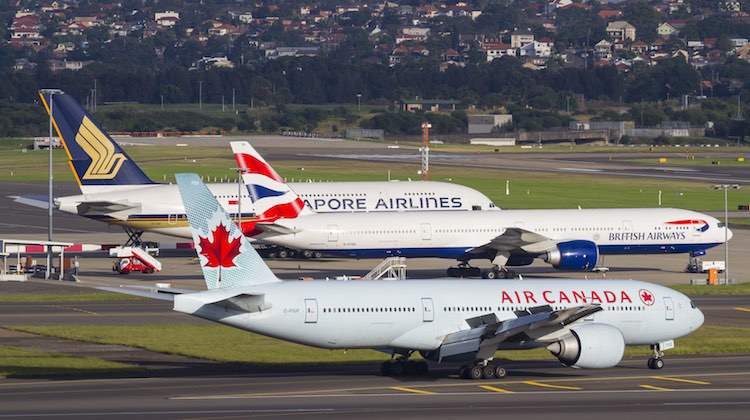
Global economic and political uncertainty has resulted in slowing demand for air travel, the International Air Transport Association (IATA) says.
While passenger demand, measured by revenue passenger kilometres (RPK), rose by 5.2 per cent in June, compared with the prior corresponding period, IATA said the “upward trend in seasonally-adjusted traffic has moderated since January”.
And with available seat kilometres (ASK) rising by more than demand at 5.6 per cent, load factors slipped 0.3 percentage points to 80.7 per cent.
“The loss of momentum can be attributed partly to the ongoing and cumulative impacts of recent high-profile terrorist attacks, which have weighed on international European traffic in particular,” IATA said.
“Typically, the impact of such shock events is just transitory, but the repeated nature of recent events suggests that the effects may be longer-lasting this time.
“More generally, the fragile and increasingly uncertain global economic backdrop continues to present a headwind to passenger demand as well.”
IATA figures showed the decisions from Qantas and Virgin Australia to adjust capacity in the Australian domestic market had resulted in a 3.6 per cent decline in available seat kilometres (ASK) in June, compared with the prior corresponding period. And with demand, measured by RPKs, up 2.8 per cent, load factors climbed 4.9 percentage points in the month to 79.4 per cent.
“Capacity in Australia has also been cut sharply over the past few months, reflecting wide-scale changes to the domestic network including much fewer frequencies and smaller aircraft,” IATA said.
“Demand has picked up in recent months.”
On a positive note, IATA said lower airfares due to the declines in the cost of fuel had encouraged more people to travel and this stimulus was expected to continue through to the end of 2016
“The demand for travel continues to increase, but at a slower pace,” IATA chief executive Tony Tyler said.
“The fragile and uncertain economic backdrop, political shocks and a wave of terrorist attacks are all contributing to a softer demand environment.”
IATA has about 260 member airlines and represents roughly 83 per cent of global air traffic.















